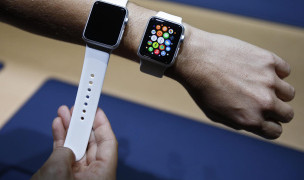 15 Terms
15 TermsHome > Industry/Domain > Biology; Medical > Human genome
Human genome
The human genome consists of 23 chromosome and the small mitochondrial DNA. 22 of the 23 chromosomes are autosomal chromosome pairs and the last one being a gender-determining pair. In total, the human genome contains the sequences of the 3 billion chemical base pairs that make up human DNA and approximately 20,000-25,000 genes. By understanding human genome, scientists are able to develop new medical applications that can significantly advance the state of health care.
Contributors in Human genome
Human genome

eugenics
Biology; Human genome
Eugenics is a bio-social movement which advocates the practice that very talented people should spread their genes by having more children, and less talented people should be discouraged from ...
celiac disease
Medical; Human genome
A digestive disease that is caused by an immune response to a protein called gluten, which is found in wheat, rye, barley, and oats. Celiac disease damages the lining of the small intestine and ...
atherosclerosis
Medical; Human genome
1) Age, lifestyle, diet, and gene related degeneration of arteries due to deposition of lipoid plaques (atheromas) on inner arterial walls; main cause of coronary artery disease, a leading cause of ...
astigmatism
Medical; Human genome
1) Unequal curvature of the refractive surfaces of the eye. Thus a point source of light cannot be brought to a point focus on the retina but is spread over a more or less diffuse area. This ...
bone marrow transplantation
Medical; Human genome
The transference of bone marrow from one human or animal to another.
cavernous
Medical; Human genome
1) Having caverns or cavities. 2) Of tissue: composed largely of vascular sinuses and capable of dilating with blood to bring about the erection of a body part.
carpal bones
Medical; Human genome
The eight bones of the wrist: scaphoid bone; lunate bone; triquetrum bone; pisiform bone; trapezium bone; trapezoid bone; capitate bone; and hamate bone.

